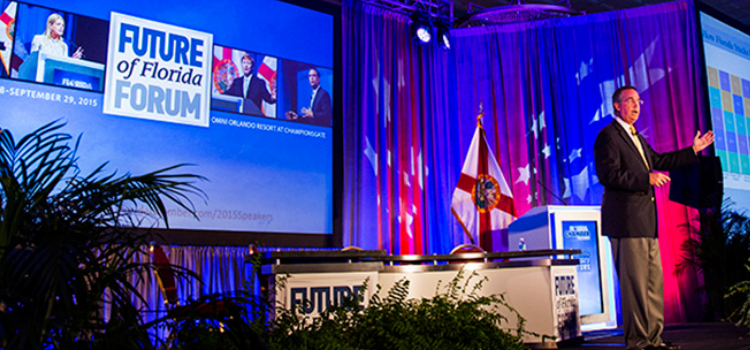It is no secret that higher education and business interests are often a mix of partnership and rivalry. Business leaders are quick to tell you how important talent is to sustaining economic growth but they are also quick to tell you when that talent is not meeting their expectations.
Universities invest millions in career readiness resources. Corporations hire college recruiters, sponsor recruiting tables, and engage academic leaders in a search for talent. In fact, a recent survey of employers conducted by the Association of American Colleges and Universities found that 82% of business executives felt a college degree is essential and 60% of hiring managers and executive believed recent graduates had the skills and abilities to be successful in that first career opportunity. Many universities believe their graduates are prepared for the workplace, and at the same time, many companies communicate recent college graduates are not prepared for their workplace.
That is why meetings like the Florida Chamber of Commerce’s Future of Florida Forum are so important. We need opportunities where educators and employers can come together and discuss talent and economic needs. This year, over 500 business, policy, legislative, and educational leaders from across Florida convened at the Future Florida Forum. Attendees got to hear from CEOs, state legislative leaders, and educators. More importantly, they got a chance to learn from each other. Most notable, several speakers seemed to agree, that Florida is much better off than many states but if we do not continue to fuel our talent pipeline and accelerate high skill talent development, we will fall behind in the near future. According to the Florida Scorecard presentation; more than 1,000 people move to Florida every day, as such, over 1.7 million new jobs will be needed by 2030. The good news; universities and colleges in Miami, Tampa, and Orlando are contributing to the talent pipeline and increasing degree production. Also noteworthy, over 70% of those students choose to stay in Florida to work after they graduate.
During the conference I led a discussion on higher education and attainment that featured Shannon Colavecchio, Public Relations Counsel from Florida Prepaid, Dr. Danette Howard, Senior Vice-President from the Lumina Foundation, Emily Bouck, Policy and Advocacy Director at Higher Learning Advocates, and Dr. Madeline Pumariega, Chancellor of the State College System. The discussion uncovered three areas where business and higher education can work together. Here is a quick summary:
- Collectively we need to revisit to college affordability. As a state, we can assume that those that can afford college are already accessing it. But many high school graduates choose not to enroll because they think they can’t afford it. As a result, many opt for low skill, low paying service level jobs. Florida is home to Aspen award winning community college and top ten universities, yet many students are not aware of their options or the benefits associated with furthering their education. We need to change that. A concerted effort focussed on helping Floridians understand college financing options could be transformative.
- We need to ensure students are exposed to a variety of careers, professional pathways, and the level of training and education associated with those careers. This is an easy fix for higher education and industry.
- A statewide attainment strategy aligned to careers and affordable educational options could strengthen strategic sectors of our economy.
In summary, the Future of Florida Forum is a prime example of what can happen when you get a diverse cross section of people into the room. While the talent gap at a national level is dire, statewide discussions can go a long way toward creating a more accurate picture and productive dialogue.
The Florida Consortium will continue to contribute to these conversations. We will also infuse the sense of urgency and importance into our actions throughout 2018 and beyond.

